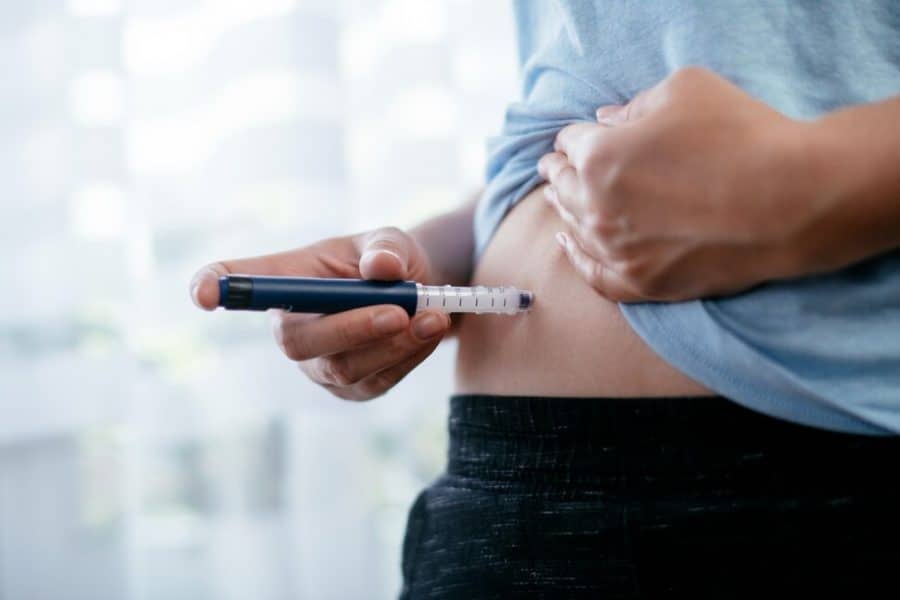Has your doctor just given you a new “diabetes” diagnosis? If so, you need to stay focused to avoid a medical crisis later on down the road. Your doctor will advise you to get to know your condition,
then your medicine. You can apply this data to any medical issue that may occur in the future.
Being a new diabetic is never easy. In fact, it can be very stressful because there is so much to learn.
Physicians advise their diabetic patients to adopt and follow a strict regimen. The regimen should
include a healthy diet, regular exercise, routine blood sugar checks, and insulin. What do you know
about your medicine as of now? Are you familiar with the effects, including onset, absorption rate,
types, peak time, and longevity? If not, you have a long road ahead. If you keep your mind clear,
the process will assuredly go smoother.
Insulin Rapid-Acting - You were opted for?
One of the most common types of insulin that deliver rapid effects. The rapid-acting type of insulin generally begins working immediately. Depending on the injection site, before, between, or after meals, doses, taken by your body, the onset of effects should be between five and 10 minutes. However, it is not unusual for the onset to occur within 15 minutes of administration.
The effects of rapid-acting insulin will end between two and four hours of initial administration. Again, several factors determine the duration of all insulin types. The same thing goes for the peak time, which will vary between one diabetic and another.
Your physician will explain various types of rapid-acting insulin, which are limited to injection and inhalation. Diabetics with a phobia of needles may be prescribed the rapid-acting inhaled insulin. It is important to note, inhalation rapid-acting insulin and the injection alternative have different peak times, onsets, and durations. These differences are only minor in most cases. Before you buy insulin online, speak to your primary care physician about your new insulin prescription.
Insulin Short-Acting Type
Short-acting, also referred to as regular-acting, insulin has an effect onset of around 1⁄2 hour (30 minutes). While the effects may begin with five to 20 minutes, it will take around 30 minutes for the full effect to appear. When the duration of the short-acting type insulin is compared to the duration of the rapid-acting type insulin, you will notice a significant difference. The effect duration of the insulin type, rapid-acting is up to a maximum of six hours. It is impossible to determine the effect duration to the point because there are too many factors that play into it.
Insulin Intermediate-Acting Type
Intermediate-acting type insulin has an effect onset of two to four hours. Like all other types of insulin, the effects will begin sooner, reaching maximum capacity in four hours. From the aforementioned insulin types, intermediate has the longest duration of up to 18 hours. The longevity varies for each patient, ranging between 1⁄2 day and 1-1/2 days.
This is a synthetic “manmade” insulin type that primary care doctors oftentimes prescribe along with insulin type short-acting.
Do You Know Your Insulin?
It is unfortunate when diabetic patients are asked about their insulin type, they do not have any answers. Ignoring your medicine could complicate your health, in the event you experience hypoglycemia. This condition is very life-threatening when the blood glucose level is not elevated immediately.
When the blood sugar level drops way below normal, the brain will not function properly. Insulin has a few health risks, which the medical community is less important than treating a condition, with long-term health risks.
Long-term use of insulin has been scientifically linked to cancer, stroke, and cardiovascular disease. Unfortunately, the human body cannot possibly store sugar or glucose in the liver or muscles without the insulin functioning properly.
Pancreas Produces Insulin
The very important human organ, the pancreas produces natural insulin. Once the blood stream senses the increase in sugar level, the message will be sent to the pancreas to release natural insulin. This is how the body controls blood glucose levels. When the pancreas’ ability to produce and release natural insulin is poor, the body will have no way of maintaining optimal blood sugar levels.

Isreal olabanji a dental assistant and public health professionals and has years of experience in assisting the dentist with all sorts of dental issues.
We regularly post timely and trustworthy medical information and news on Fitness, Dental care, Recipes, Child health, obstetrics, and more.
The content is intended to augment, not replace, information provided by your clinician. It is not intended nor implied to be a substitute for professional medical advice. Reading this information does not create or replace a doctor-patient relationship or consultation. If required, please contact your doctor or other health care provider to assist you to interpret any of this information, or in applying the information to your individual needs.


